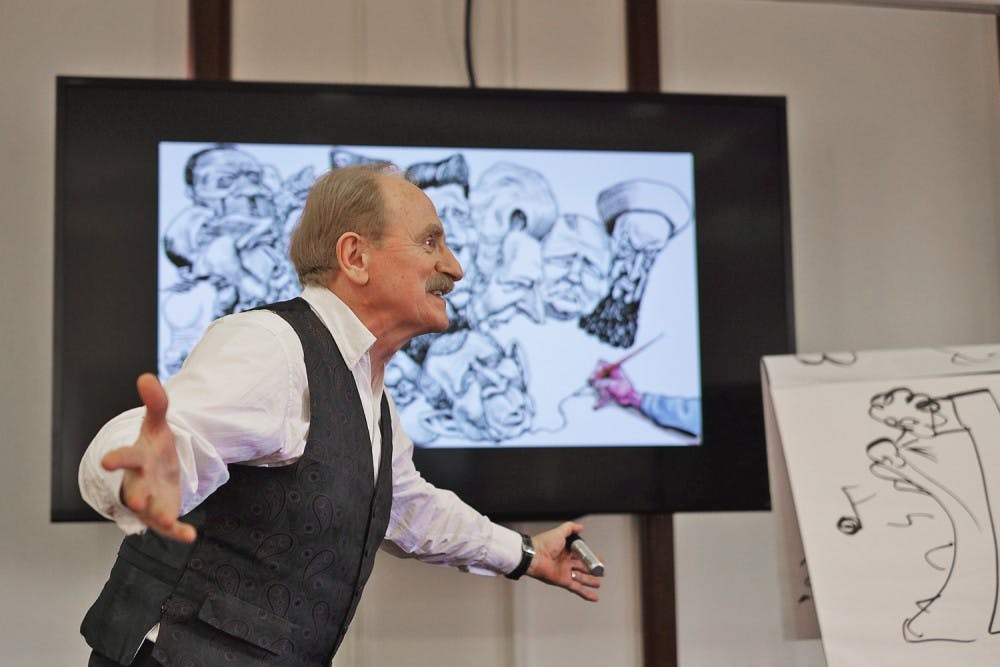Kevin Kallaugher, an editorial cartoonist for The Economist magazine and The Baltimore Sun, spoke about the importance of political cartooning after the attacks on Charlie Hebdo’s offices in Paris. Kallaugher knew three of the cartoonists killed by Islamic extremists after the publication printed an offensive depiction of the prophet Muhammad.
Kallaugher said cartooning is a negative art form because it makes fun of people in power, using humor as a vehicle for an often-serious message.
“All of us can imagine that if an artist has the ability to take your face, pull it apart and reassemble it under our control, that’s a pretty powerful person,” Kallaugher said.
He said he has caricatured almost every prominent world leader over the course of his career. His image of the former prime minister of India, Indira Gandhi, was confiscated and burned at Indian airports when it appeared on the front page of The Economist.
“It goes straight to the vanity of powerful people,” he said.
Kallaugher drew cartoons as he spoke, illustrating his creative process when depicting subjects and choosing symbols.
“We deal with sensitive subjects and, even in the U.S., we get ourselves in hot water all the time,” he said. “Death threats do happen, even for minor things. There are just a lot of excitable people around. There’s something special about what cartoons do. They just upset people in a magical way.”




